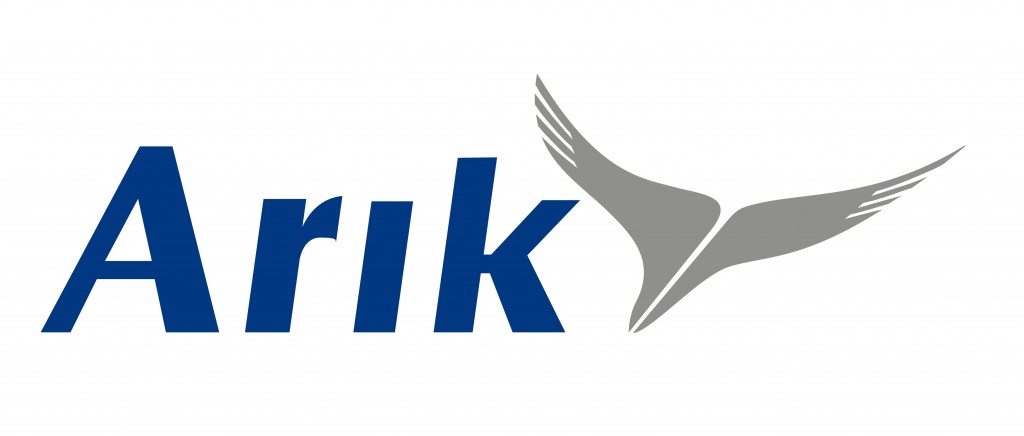News
SERAP Tells Akpabio to Reject Wike’s Proposal in 2024 Budget

Socio-Economic Rights and Accountability Project (SERAP) has urged Mr Godswill Akpabio, Senate president, to use his leadership position “to promptly reject the plan by Nyesom Wike, minister of the FCT, to spend N15 billion for the construction of ‘a befitting residence’ for Mr Kashim Shettima, vice president.”

SERAP also urged Akpabio to “assert Senate’s authority and constitutional oversight roles to reject the N2.8 billion on publicity for the FCTA and other proposed wasteful and unnecessary spending that may be contained in the 2023 supplementary budget and the 2024 budget proposed by President Bola Tinubu.”
In the letter signed by, Kolawole Oluwadare, SERAP deputy director ,at the weekend, the organisation said: “The plan to spend N15 billion on ‘a befitting residence’ for the vice president is a fundamental breach of the Nigerian Constitution and the country’s international anticorruption and human rights obligations.”
SERAP said: “The Senate has the constitutional duties to ensure that Mr Wike’s proposed spending is entirely consistent and compatible with constitutional provisions including his oath of office. All public officials remain subject to the rule of law.
“The National Assembly including the Senate has a constitutional responsibility to address the country’s debt crisis, including by rejecting wasteful and unnecessary spending to satisfy the personal comfort and lifestyles of public officials.”
The group added that, “The National Assembly cannot continue to fail to fulfil its oversight function. The Senate must assert and demonstrate its independence by checking and rejecting all wasteful and unnecessary spending by the executive.
“It would be a grave violation of the public trust and constitutional oath of office for the Senate to approve the plan to spend N15 billion on ‘a befitting residence’ for the vice president at a time when the Federal Government is set to spend 30% (that is, N8.25 trillion) of the country’s 2024 budget of N27.5 trillion on debt service costs.
“The Federal Government also plans to borrow N7.8 trillion to fund the 2024 budget. Nigeria’s public debt stood at 87.4 trillion naira as of June with 38% owed to external creditors including multilateral and commercial lenders.
“Should the Senate and its leadership fail to stop wasteful and unnecessary spending and rein in government borrowing, SERAP would consider appropriate legal action to compel the National Assembly including the Senate to discharge its constitutional oversight roles in the public interest.
“SERAP urges you to refer to the Economic and Financial Crimes Commission (EFCC) and Independent Corrupt Practices and Other Related Offences Commission (ICPC) the allegations of corruption in the spending of the previously approved N7 billion for the construction of a new residence for the vice president.
“The ‘construction’ was reportedly abandoned but the whereabouts of the N7 billion remain unknown.
“The Senate has the constitutional competence and legitimacy to compel compliance with the Nigerian Constitution and the country’s international obligations.
“The Senate ought to assert its authority and vigorously exercise its constitutional oversight roles to check the apparently wasteful and unnecessary spending by Mr Wike especially given the growing debt crisis and the indiscriminate borrowing by the government.
“It is a travesty and a fundamental breach of the lawmakers’ fiduciary duties for the National Assembly to allow the executive to use the national budget as a tool to satisfy the comfort and lifestyle of public officials.
“Nigerians have a right to honest and faithful performance by their public officials including lawmakers, as public officials owe a fiduciary duty to the general citizenry.
“Cutting the N15 billion on ‘a befitting residence’ from the FTCA budget would be entirely consistent with your constitutional oath of office, and the letter and spirit of the Nigerian Constitution, as it would promote efficient, honest, and legal spending of public money.
“According to our information, the Minister of the FCT, Nysom Wike and the Federal Capital Territory Administration (FCTA) plan to spend N15 billion for the construction of ‘a befitting residence’ for the Vice-President, Mr Kashim Shettima.
“The plan is contained in the N67 billion FCT supplementary budget which President Bola Tinubu had on Tuesday transmitted to the National Assembly for approval.
“SERAP notes that Mr Wike proposed plan to spend N15 billion on a new residence for the vice president despite the recent allocation of N2.5 billion for the renovation of the current residence of the VP in the federal government’s supplementary budget already passed by the National Assembly and signed by President Tinubu.
“The House of Representatives has reportedly approved the plan to spend N15 billion on ‘a befitting residence’ for the vice president.
“The National Assembly has also approved another N3 billion for the renovation of the vice president’s residence in Lagos State. Mr Wike also plans to spend N2.8 billion on publicity for the FCTA.
“The proposed plan to spend 15 billion on ‘a befitting residence’ for the vice president is different from the
News
UK Minister for Africa Visits Nigeria to Deepen Strategic Partnership

The United Kingdom’s Minister for Africa, Lord Collins of Highbury, has concluded a three-day visit to Nigeria, aimed at reinforcing the UK-Nigeria Strategic Partnership.

He reaffirmed the UK Government’s strong commitment to deepening trade and investment ties between the United Kingdom and Nigeria.
During his visit, Lord Collins met with senior Nigerian government officials, business leaders, civil society representatives and United Nations agencies.
These engagements underlined the UK’s long-term drive to support Nigeria’s prosperity and stability while deepening bilateral cooperation for transformative growth across our shared priorities.
A key highlight of the visit was Lord Collin’s bilateral meeting with Nigeria’s Minister of Foreign Affairs, Yusuf Tuggar, in which both parties reaffirmed their unwavering commitment to strengthening economic ties and promoting regional security. The Minister was joined by the UK’s Trade Envoy to Nigeria, Florence Eshalomi MP.
Lord Collins also met with Deputy Speaker of the House of Representatives, Hon. Benjamin Kalu, and discussions focused on opportunities to strengthen engagement between UK’s parliament and Nigeria’s National Assembly and the importance of furthering women’s participation in politics.
Speaking on his visit, the UK Government’s Minister for Africa, Lord Collins said: “Nigeria and the UK share a rich, ambitious relationship: one that is deeply rooted in respect.
“Our Strategic Partnership is at the forefront of this, and my visit has focused on how our countries can continue deepening our cooperation on key issues such as trade and investment to drive economic growth and deliver prosperity for us all.”
The Minister held discussions with United Nations representatives on the ongoing reform of the UN system, its implications for Nigeria and how the reform can effectively support those most in need, particularly in Northeast Nigeria, whilst also contributing to global humanitarian efforts.
Lord Collins also met with civil society leaders to discuss electoral integrity and governance reforms, reinforcing the UK’s commitment to democratic values and community empowerment.
He later visited Nigeria’s Anti-Kidnap Fusion Cell: a key security initiative supported by UK expertise through the National Crime Agency and the Integrated Security Fund, which plays a vital role in enhancing local safety and combating serious crime.
Also commenting on the visit, the British High Commissioner to Nigeria, Dr Richard Montgomery, said: “Driving growth is central to the UK’s foreign and development policy. Lord Collins’ visit to Nigeria underscores the UK’s unwavering commitment to deepening our shared prosperity through expanded trade and investment. We are proud to stand alongside Nigeria as it forges a resilient and dynamic economy.”
This visit underscores the UK’s enduring partnership with Nigeria – built on mutual respect, shared goals, and a vision for a prosperous future for both nations.
News
PalmPay Launches CSR Initiatives to Empower Women, Foster Financial Literacy in Northern Nigeria

In a strategic move to expand financial inclusion in Nigeria, leading mobile banking platform, PalmPay has launched a series of CSR programs across Kano and Kaduna. The CSR initiative named “Passing the Baton” represents the brand’s commitment to passing on knowledge and providing the resources individuals and businesses need to achieve financial independence and drive economic empowerment.

This initiative is a bold move by PalmPay to bridge the opportunity gap in the North by providing financial literacy training and micro-business branding support to 5,000 women-owned businesses in Kano and Kaduna. This strategic initiative reaffirms PalmPay’s commitment to inclusive development and economic empowerment, particularly in underserved regions.
“At PalmPay, we believe that real financial inclusion must be far reaching and cover the grassroots,” said Chika Nwosu, Managing Director of PalmPay. “Our new CSR program is focused on supporting gender equity by equipping women with the knowledge, tools, and visibility they need to thrive as entrepreneurs in their communities.”
Through this initiative, beneficiaries will receive free health insurance, hands-on training workshops, enhanced store branding to boost visibility, and branded merchandise to strengthen their business presence.
The initiative is part of PalmPay’s broader strategy to extend its innovative solutions, expand its footprint in Northern Nigeria, while building sustainable partnerships with local stakeholders for long-term impact.
In a show of support, His Royal Highness, the Emir of Kano, Dr. Muhammadu Sanusi II, has endorsed the initiative, calling on other stakeholders to join forces with PalmPay in ensuring the North benefits fully from the growing digital economy. PalmPay has received commendation from community stakeholders, as the initiative aims to serve as a model for similar projects across other northern states.
As PalmPay continues to scale across Nigeria, the company remains committed to bridging the financial inclusion gap and empowering underserved groups, particularly women and youth, through its innovative solutions and impact initiatives.
News
EFCC Witness Admits Writing Off Arik Air’s $2.3M Debt Amid N76Bn Fraud Trial



 E-Financial2 days ago
E-Financial2 days agoSEC Alerts Public on Silverkuun, Trending Dubious Investment Schemes

 Telecom2 days ago
Telecom2 days agoGlo, Huawei, Communications Ministry Bring Digital Services to Abuja Village

 General News2 days ago
General News2 days agoTripoint Travels Hosts Pre-GEC Brunch for Nigerian Delegates Ahead of Global Entrepreneurship Congress 2025

 News2 days ago
News2 days agoPalmPay Launches CSR Initiatives to Empower Women, Foster Financial Literacy in Northern Nigeria

 E-Financial2 days ago
E-Financial2 days agoAfrica Cross-border Payments Set to Hit $1 trillion by 2035

 Telecom2 days ago
Telecom2 days agoExperts @ ABoICT 2025 Warn of Digital Disaster Risks in Nigeria Without AI Governance

 E-Financial2 days ago
E-Financial2 days agoSANEF, CIBN Partner to Expand Agency Banking Certification

 Broadcasting2 days ago
Broadcasting2 days agoDStv Makes History: Inducted into Brand Africa Hall of Fame as Africa’s Most Admired Media Brand


























